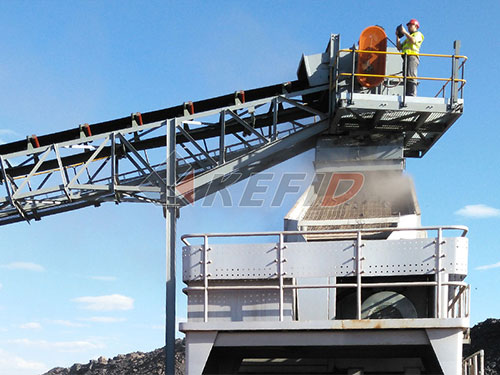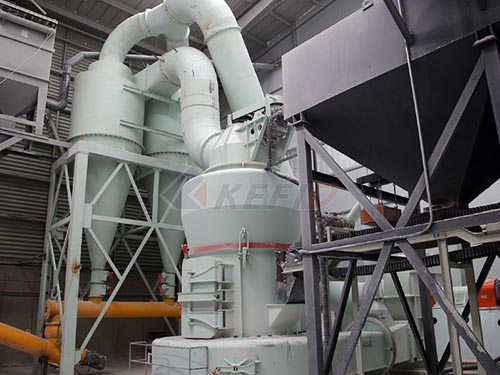The TSW Series Vibrating Feeder is a type of heavy-duty feeding equipment designed for robust performance in mining, quarrying, and aggregate production. Below is a detailed overview of its features, applications, and technical specifications:

Key Features:
1. Advanced Vibrating Mechanism
– Utilizes a double eccentric shaft exciter for stable vibration, ensuring smooth and efficient material flow.
– Adjustable amplitude and frequency for precise control over feed rate.
2. Durable Construction
– High-strength steel frame with reinforced liners for extended service life.
– Resistant to wear and impact, suitable for harsh environments.
3. High Efficiency & Large Capacity
– Handles large volumes of bulk materials (up to 1,500 t/h, depending on model).
– Uniform feeding reduces segregation and optimizes downstream processing.
4. Low Maintenance Design
– Grease-lubricated bearings reduce friction and maintenance needs.
– Modular structure simplifies part replacement.
5. Energy Saving
– Optimized motor power consumption lowers operational costs.
Applications:
– Primary feeding for crushers (jaw/impact/cone crushers).
– Bulk material handling in mining, metallurgy, coal, and construction.
– Aggregates, sand & gravel plants.
– Recycling industries (e.g., waste concrete processing).
Technical Specifications (Example Model: TSW1548):
| Parameter | Value |
|–||
| Max. Feed Size | ≤800 mm |
| Capacity | 400–1,500 t/h |
| Vibration Frequency| 700–1,000 rpm |
| Amplitude | Adjustable (typically 8–12 mm) |
| Motor Power | 15–55 kW (varies by model) |
| Weight | ~6–12 tons |
Advantages Over Conventional Feeders:
– Reduced Blockages: Steep discharge angle prevents material buildup.
– Lower Noise Levels: Balanced vibration mechanism minimizes operational noise.
– Smart Compatibility: Can integrate with automated control systems (e.g., PLCs).

Installation & Maintenance Tips:
– Ensure proper alignment with downstream equipment (e.g., crusher inlet).
– Regularly check bolt tightness and bearing lubrication.
– Monitor wear on liners and replace as needed.
For specific model selection or customization options (e.g., dust-proof
Leave a Reply